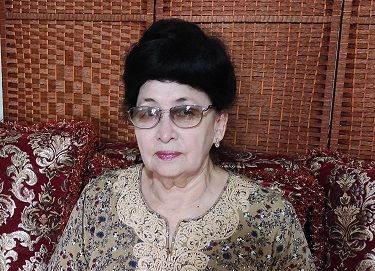Ramilya Delmuhametova
On 13 November 2021, a new Law of Turkmenistan “On the legal status of foreign citizens” was adopted.
This law defines the legal status of foreign citizens, stateless persons in Turkmenistan, and also regulates relations in connection with their stay and implementation of employment, business or other activities on the territory of Turkmenistan.
This Law consists of 4 chapters and 41 articles. For comparison, a similar legal document regulating the status of foreign citizens dated March 26, 2011 consisted of three chapters and 27 articles.
The new law is more specific. For example, it contains some provisions, fixing statelessness identification mechanism.
The basic concepts and terms have also been expanded such as a foreign citizen, family members, a stateless person, the status of a stateless person, a person applying for determining the status of a stateless person, a certificate of a stateless person, a travel document of a stateless person, identification of a person who does not have a document or a valid identity document, a minor foreign citizen unaccompanied by legal representatives.
Foreign citizens can reside in Turkmenistan on the basis of a residence permit, enjoy rights and freedoms, and perform duties in the same way as citizens of Turkmenistan. They are obliged to observe the Constitution of Turkmenistan, the laws of Turkmenistan and respect national traditions, historical, cultural and natural heritage.
Stateless persons have the right to reside in Turkmenistan on the basis of a residence permit or an identity card of a stateless person in accordance with the procedure established by this Law and other regulatory legal acts of Turkmenistan. Foreign citizens and stateless persons staying in Turkmenistan are obliged to leave Turkmenistan before the end of their stay, except in cases of extension of their stay.
The documents certifying the identity of a foreign citizen in Turkmenistan are the following:
- passport of a foreign citizen,
- residence permit in Turkmenistan,
- certificate of return to the country of citizenship.
Foreign citizens have the right to health protection, social security, and the right to housing. In particular, the Law establishes the right of personal ownership of a house and other property in Turkmenistan, the right to use land plots.
The foreign students in Turkmenistan have the rights and perform the duties of students in accordance with the legislation of Turkmenistan.
Foreign citizens may enter into and terminate marriages with citizens of Turkmenistan and among themselves in accordance with the legislation.
Foreigners in Turkmenistan are guaranteed the inviolability of the person, home, their honor and dignity and other personal rights and freedoms.
Also, foreign citizens can freely move across the territory of Turkmenistan and choose their place of residence in accordance with the procedure established by the legislation of Turkmenistan.
Foreign citizens have the right to appeal to the court and other state bodies, as well as to diplomatic missions and consular offices of their countries to protect their personal, property and other rights.
The Law also applies to stateless persons.
Determination of the status of a stateless person in Turkmenistan provides for:
- applying for the determination of the status of a stateless person or at the initiative of the State Migration Service of Turkmenistan,
- issuance of a temporary certificate of registration of the application,
- registration of the applicant after the issuance of a temporary certificate
- consideration of the application for determination of the status of a stateless person;
- implementation of a set of measures to identify a stateless person
- issuance of a certificate of a stateless person and, upon application, a travel document for a stateless person.
Any person who claims to be stateless, regardless of the grounds for stay in Turkmenistan, may file an application for determining the status of a stateless person.
About the author: Ramilya Delmuhametova – Rima – is a retired lawyer with over 40 years of experience in administration and civil law.
/// nCa, 28 February 2022
